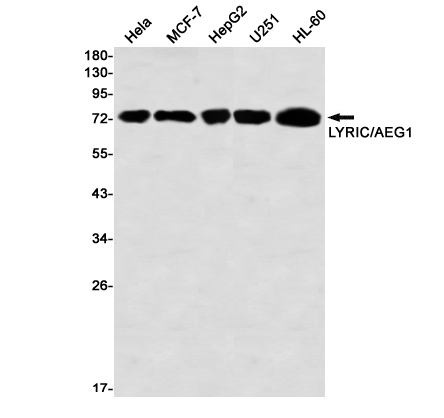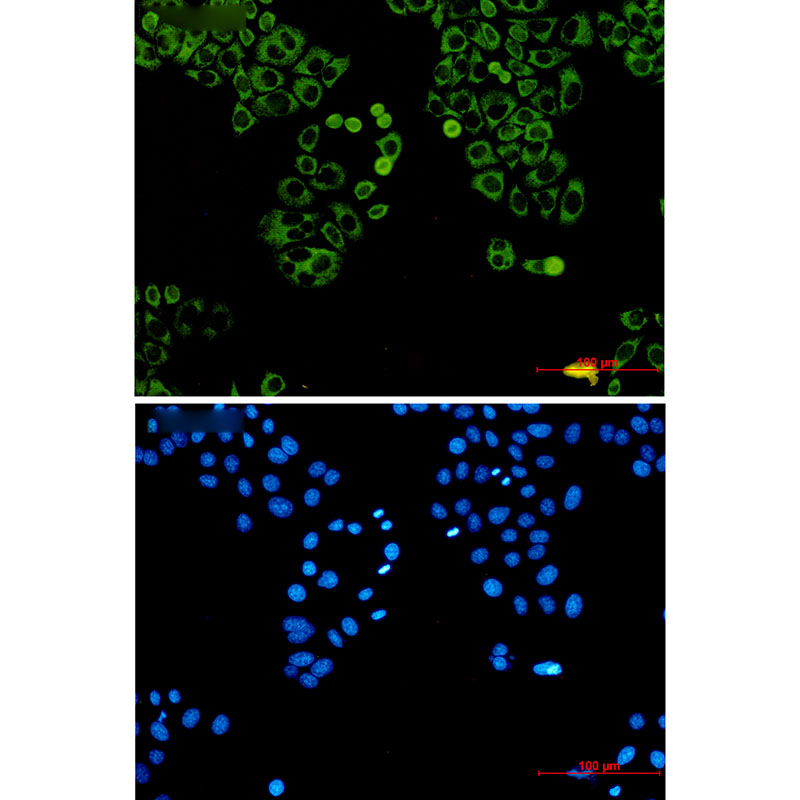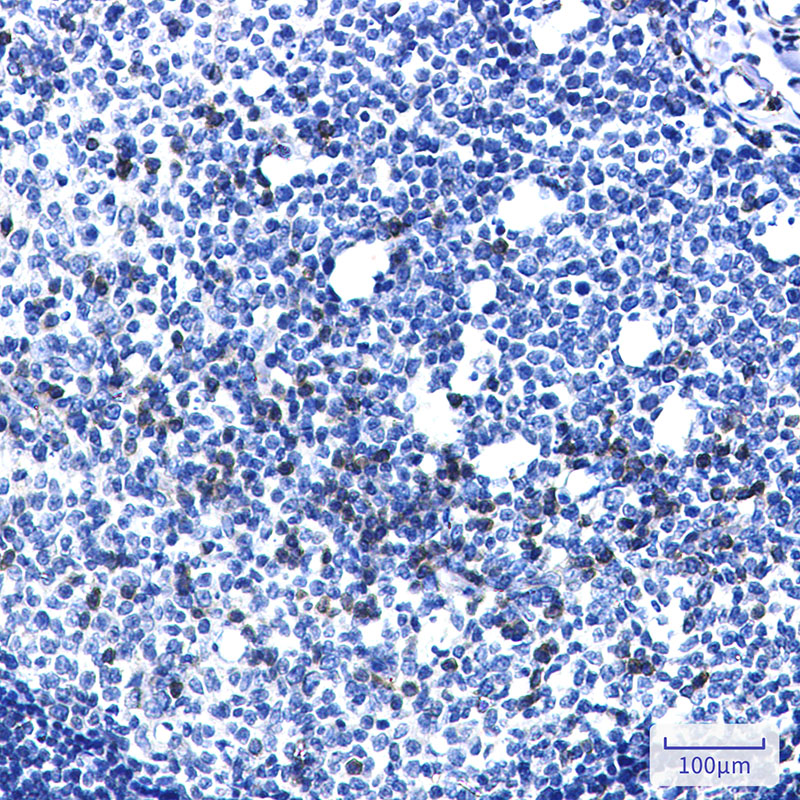


| WB | 1/500-1/1000 | Human,Mouse,Rat |
| IF | 1/20 | Human,Mouse,Rat |
| IHC | 1/50-1/100 | Human,Mouse,Rat |
| ICC | 1/50-1/200 | Human,Mouse,Rat |
| FCM | 咨询技术 | Human,Mouse,Rat |
| Elisa | 咨询技术 | Human,Mouse,Rat |
| Aliases | MTDH; AEG1; LYRIC; Protein LYRIC; 3D3/LYRIC; Astrocyte elevated gene-1 protein; AEG-1; Lysine-rich CEACAM1 co-isolated protein; Metadherin; Metastasis adhesion protein |
| Entrez GeneID | 92140 |
| WB Predicted band size | Calculated MW: 64 kDa; Observed MW: 75 kDa |
| Host/Isotype | Rabbit IgG |
| Antibody Type | Primary antibody |
| Storage | Store at 4°C short term. Aliquot and store at -20°C long term. Avoid freeze/thaw cycles. |
| Species Reactivity | Human |
| Immunogen | Recombinant protein of human LYRIC/AEG1 |
| Formulation | Purified antibody in TBS with 0.05% sodium azide,0.05%BSA and 50% glycerol. |
+ +
以下是关于LYRIC抗体的3篇参考文献示例(注:部分文献信息为示例性概括,实际引用时需核实):
1. **文献名称**:*MTDH/AEG-1 (LYRIC) as a therapeutic target in breast cancer*
**作者**:Yoo BK, et al.
**摘要**:研究通过LYRIC特异性抗体检测MTDH/AEG-1在乳腺癌中的表达,发现其高表达与肿瘤转移和化疗耐药性相关,提示其作为治疗靶点的潜力。
2. **文献名称**:*Characterization of a novel monoclonal antibody against LYRIC/AEG-1 for immunohistochemical analysis*
**作者**:Sarkar D, et al.
**摘要**:开发了一种高特异性的LYRIC单克隆抗体,验证其在肝癌组织中的免疫组化应用,证实LYRIC过表达与患者生存率降低显著相关。
3. **文献名称**:*LYRIC/AEG-1 regulates NF-κB signaling through interaction with IKK complexes*
**作者**:Emdad L, et al.
**摘要**:利用LYRIC抗体进行免疫共沉淀实验,揭示LYRIC通过结合IKK复合物激活NF-κB通路,促进炎症相关肿瘤微环境的形成。
4. **文献名称**:*LYRIC antibody-based detection in glioblastoma reveals prognostic significance*
**作者**:Kang DC, et al.
**摘要**:通过LYRIC抗体的Western blot和免疫荧光分析,证明胶质母细胞瘤中LYRIC的异常表达与患者预后不良及侵袭性表型相关。
(注:以上文献信息为示例,实际研究中请根据具体需求检索真实文献。)
LYRIC (lysine-rich CEACAM1 co-isolated) antibody targets the LYRIC protein, also known as metadherin (MTDH) or astrocyte elevated gene-1 (AEG-1). Initially identified in studies of hepatitis C virus-induced gene expression in astrocytes, LYRIC gained attention for its role in cancer biology. It is a multifunctional oncoprotein overexpressed in numerous malignancies, including breast, prostate, liver, and brain cancers. LYRIC is implicated in tumor progression, metastasis, and therapy resistance by regulating key pathways such as NF-κB, PI3K/AKT, and Wnt/β-catenin. Its interaction with diverse binding partners enables modulation of apoptosis, angiogenesis, and DNA repair processes.
LYRIC antibodies are critical tools for detecting its expression and localization in research settings, aiding in studies of its mechanistic roles and clinical associations. Elevated LYRIC levels correlate with poor prognosis, making it a potential biomarker for aggressive disease. Additionally, LYRIC's involvement in chemoresistance has spurred interest in therapeutic targeting, though its complex regulation and pleiotropic functions pose challenges. Current research focuses on elucidating LYRIC's structural domains, post-translational modifications, and tissue-specific interactions to refine diagnostic and therapeutic strategies. The development of specific LYRIC antibodies continues to support these efforts, bridging gaps in understanding its dual roles as both an oncogenic driver and a stress-response mediator.
×